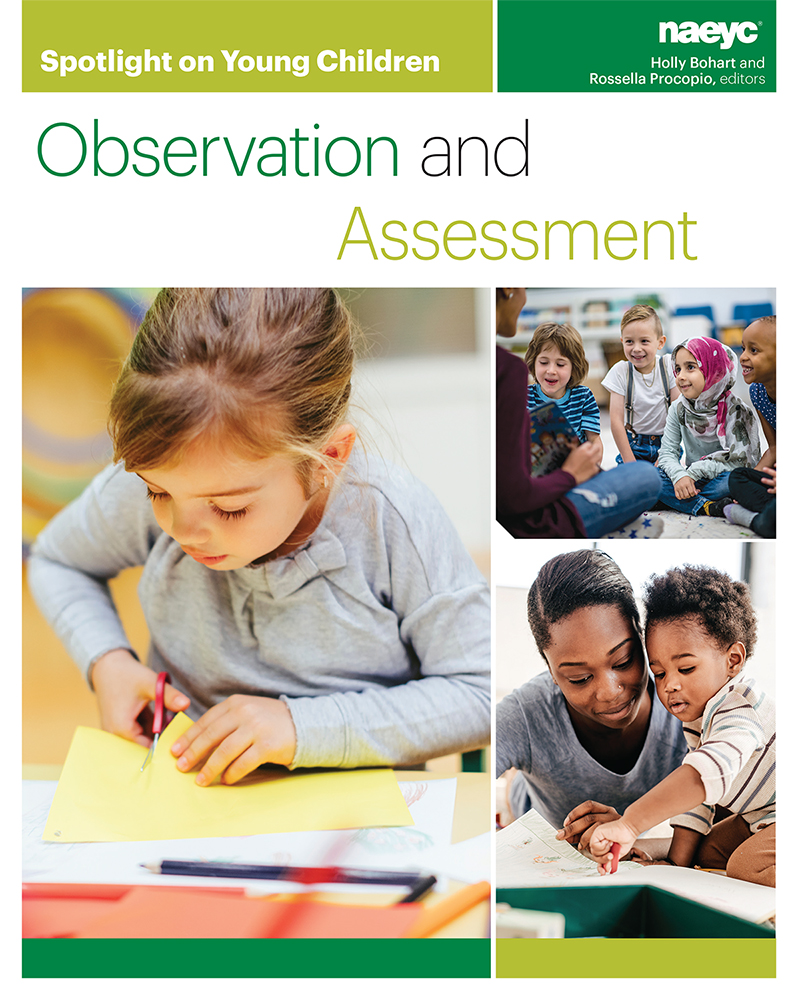Online Professional Development and Virtual Learning with NAEYC: Opportunities for Growth During Times of Change

COVID-19 is affecting nearly every country worldwide. Yet many of us are feeling separated, isolated, and alone in our struggle! Some early childhood practitioners are currently facing the challenges of working in centers serving children of essential workers, while others are at home engaging in remote teaching while navigating their own family responsibilities. Finding the balance between maintaining routine and allowing room for flexibility has become more important than ever. Maintaining our confidence level as professionals through virtual learning opportunities— whether it is a topic relating to the extraordinary circumstances we are in or something as joyful as designing learning experiences with butterflies or earthworms—can go a long way in helping us get through these turbulent times. The addition of new technology and the unprecedented social-emotional needs of children and families has many of us feeling like students all over again. Having patience with ourselves and with one another is crucial for maintaining our physical, mental, and emotional health.
What Topics Should I Focus On?
Times of stress and change can cause difficulty with concentration and mental planning. Professional development topics that were important just weeks ago may now seem trivial under the weight of the current global crisis. It’s important to listen to your own feelings on this and choose a topic that is both relevant and interesting at the moment. Finding ways to engage in remote professional development opportunities with a coworker or two can be a light in these dark times. Connect with colleagues by sharing a common professional goal, and discuss each other's thoughts and experiences on the topic. Remember: professional development is not only about the content. It is about engaging in shared learning experiences with others and exercising our creative minds. Here are some ideas:
Talking to Children About Community Disasters
None of us know for sure what things will look like when we emerge from this crisis, but we can predict with confidence that our students and their families will need extra support. We can arm ourselves with tools for discussing traumatic experiences with compassion and understanding.
Explore ways to talk to children about their experiences during their time at home with these resources:
- Rocking and Rolling. The Calm in the Storm: Supporting Young Children before, during, and after a Community Disaster or Trauma. Young Children November 2018 Vol. 73, No. 5
- 11 Tips for Helping Children Who Have Experienced a Disaster. Teaching Young Children February/March 2018 Vol. 11, No. 3
- The Power of Storytelling in Early Childhood: Helping Children Process the Coronavirus Crisis
Child Assessment and Observation
Many practitioners are searching for ways to continue child observation and assessment during this time of shelter-in-place while acknowledging that there are limits to what can happen virtually. Child assessment is based on the observation and documentation of children as they play, interact, and create. The Hello Community has a discussion thread on the assessment of children during preschool closure which discusses what can be accomplished remotely, though many recognize that this unfortunately can not fully take place until children are back in school.
Practitioners can also use this time to really understand the purpose of child assessment. Explore your state's early learning standards for the age group you work with, as well as NAEYC’s professional standards and competencies, and take a deeper dive into the anecdotes and children’s work samples you have already collected.
Try using these resources to dive deeper into assessment:
- Assessment in Kindergarten: Meeting Children Where They Are. Young Children July 2019 Vol. 74, No. 3
- What’s Next? How Learning Progressions Help Teachers Support Children’s Development and Learning. Young Children July 2019 Vol. 74, No. 3
- Anecdotal Records: Practical Strategies for Taking Meaningful Notes. Young Children July 2019 Vol. 74, No. 3
- For administrators, coaches, and directors: Unlocking the Potential of Data-Driven Coaching: Child Assessment Evidence as a Guide for Informing Instructional Practices. Young Children July 2019 Vol. 74, No. 3
 Spotlight on Young Children: Observation and Assessment
Spotlight on Young Children: Observation and Assessment
By: Holly Bohart, Rossella Procopio
Find inspiration to intentionally develop and implement meaningful, developmentally appropriate observation and assessment practices to build responsive, joyful classrooms.
Ways to Access Virtual Professional Development Opportunities:
There are many ways to access virtual professional development through your NAEYC membership. Available topics range from higher order thinking to equity and inclusion.
See a complete list of available online learning modules.
- Premium membership includes two free modules per year as a member benefit.
- Standard membership includes one free module per year as a member benefit.
- COVID-19 resources page: curated resources for many topics concerning COVID-19
- Hello Community thread: a collection of Covid-19 resources from the community
- Upcoming and recorded webinars: Both upcoming and archived NAEYC webinars are available for free to all members. This includes recent presentations on SBA loans in English and Spanish and one presentation on digital storytelling at home. Watch recorded webinars at the same time as one or two coworkers. At different points in the webinar, pause the presentation to discuss with a coworker virtually before moving along.
- Virtual Institute - Starting June 1, NAEYC will offer six weeks of newly recorded presentations to support your professional development. The Virtual Institute is free and open to anyone who is interested in some of the latest research and best practices in early childhood education.
- NAEYC books
-
Articles from Teaching Young Children and Young Children.
Hold virtual “article study” sessions with small groups of practitioners, reading a brief article and then discussing.
Tips on how administrators and directors can virtually engage in continued professional development opportunities and support their staff.
Supporting your staff with online learning:
-
Offer detailed guidance on how to use online learning platforms for staff who might be having trouble.
- This might mean you yourself need to brush up on how specific systems work!
-
Make sure staff have the tools they need to communicate with children and families easily.
- Do certain online platforms require membership?
- Do teachers have updated contact information for all students?
- Do teachers have the classroom learning materials they need to conduct lessons remotely?
- Enlist a few tech-savvy staff members and form a “Tech Team.” The team would be responsible for supporting staff having difficulties.
- When organizing PD opportunities for your staff, take a poll to assess what everyone is interested in focusing on. Present a few topics to choose from and create a “remote PD plan” for the next few months.
- Be patient. Just like young children, adults under stress have difficulty concentrating, retaining information, and adapting to change. It’s important to maintain professional boundaries while still being empathetic and compassionate. Make sure your staff knows that if they or a close family member become ill, they should let you know immediately.
Participate in webinars focusing on small business concerns during this crisis.
Paycheck Protection Program (PPP) & Economic Injury Disaster Loan (EIDL)
- NAEYC offers articles on PPP in English and Spanish
- NAEYC offers articles on EIDL in English and Spanish
Lisa Mufson Bresson, MEd, is an early childhood education consultant with Beyond Boundaries, LLC, and coauthor of NAEYC’s bestselling book Big Questions for Young Minds: Extending Children’s Thinking. She leads workshops and presentations at local, state, national, and international conferences, thriving on the connections she makes with learners— both big and little!—on a daily basis. Since 2008, she has been a contributing author to Teaching Young Children (TYC), NAEYC’s magazine for preschool teachers, and serves on TYC ’s advisory board. She is a former program manager for Grow NJ Kids, New Jersey’s statewide Quality Rating and Improvement System for early childhood programs. Previously, Lisa taught in urban public preschool settings for over a decade.
